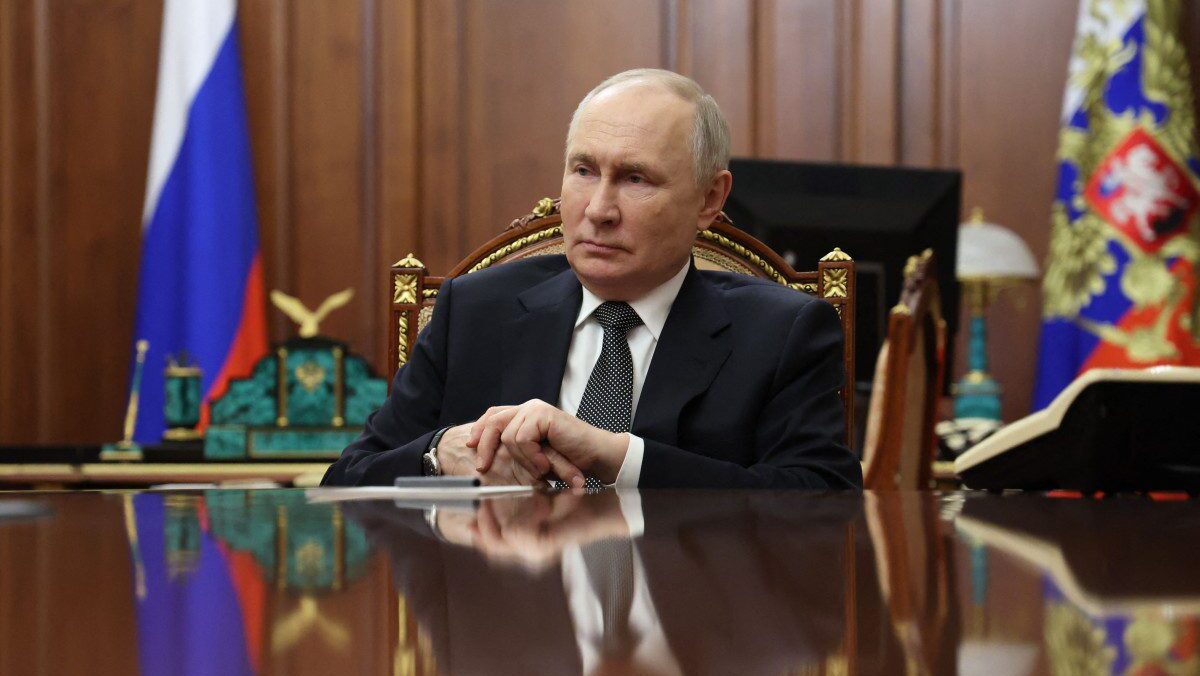European Union member states approved a thirteenth round of sanctions against Russia on Wednesday, February 21st, which for the first time target Chinese companies accused of supporting Moscow’s war. The new package will see 193 entities and individuals added to the list of those banned from travelling to the EU or doing business there. Though the current Belgian EU Presidency hailed the package as “one of the broadest approved by the EU,” critics say the move will have little real impact.
— Belgian Presidency of the Council of the EU 2024 (@EU2024BE) February 21, 2024
Deal
EU Ambassadors just agreed in principle on a 13th package of sanctions in the framework of Russia's aggression against Ukraine.
This package is one of the broadest approved by the EU. It will undergo a written procedure and be formally approved for the 24 February.
Twenty-seven companies have been sanctioned for being involved with the procurement network supporting Russia’s military, especially the supply chain to make drones. This means European firms cannot sell dual-use goods to them—software and technology that can be used for both civilian and military applications. The companies added are mostly Russian, but also include three mainland Chinese firms and one Hong Kong-based company, as well as firms in Turkey, India, Serbia, and Kazakhstan.
European Commission President Ursula von der Leyen praised the new package, tweeting: “We must keep degrading Putin’s war machine.”
I welcome the agreement on our 13th sanctions package against Russia
— Ursula von der Leyen (@vonderleyen) February 21, 2024
⁰We must keep degrading Putin's war machine.
⁰With 2000 listings in total, we keep the pressure high on the Kremlin.
⁰We are also further cutting Russia’s access to drones. https://t.co/AfSxsEUB8x
The EU has been trying to stop sanctions being circumvented by third parties, but last summer, it removed five Chinese entities from a previous sanctions package after complaints from Beijing officials and reservations from some member states.
As part of the new package, the EU imposed an asset freeze and visa ban on North Korea’s defence minister Kang Sun Nam for the supply of ballistic missiles to Moscow. The sanctions also target Russian-operated institutions that re-educate children who have been kidnapped from Ukraine. Last year, the International Criminal Court indicted officials including President Vladimir Putin for abducting Ukrainian children, which it called a war crime.
The new package of sanctions has been approved in time to coincide with the second anniversary of the start of Russia’s invasion of Ukraine on February 24th. However, Hungary’s Foreign Minister Péter Szijjártó said the only aim of the sanctions was to show the EU had “done something” on the eve of the second anniversary. The measures are only there for “keeping up appearances,” but do nothing to bring us closer to peace in Ukraine, he added.
— Zoltan Kovacs (@zoltanspox) February 19, 2024
FM Szijjártó: We have removed all elements from the EU's 13th sanctions package against Russia which were damaging Hungary's national interest.
Discussions of a 14th package are underway, but Hungary insists on excluding harmful measures. Criticism arises over the EU's… pic.twitter.com/11KFkG4EYs
“So far as current evidence says, sanctions on Chinese companies would have little to no effect on Russia. I see this as being kind of an expression of some degree of hostility towards China, without being effective about it,” Dan Smith, director of the Stockholm International Peace Research Institute (SIPRI) told the Hong Kong-based daily South China Morning Post.
EU ambassadors also renewed for six months the current sanctions regime that lists around 2,000 individuals and companies. The sanctions so far imposed have targeted restrictive measures against individuals, economic sanctions and visa measures. Economic sanctions include a ban on the import of Russian coal, steel, gold, diamonds, and the import or transfer of seaborne crude oil. EU member states, such as Hungary, that are reliant on Russian energy sources, have succeeded in exempting from the ban imports of crude oil by pipeline, and are also pushing back against attempts to sanction the Russian nuclear energy sector.
Despite the economic punishment, Russia’s economy has remained resilient and the Kremlin has managed to ramp up military production. A diplomat who spoke to Euronews said it had become “quite clear” that the sanctions on Russia were not as effective as the bloc had originally hoped. A recent forecast by the International Monetary Fund (IMF) upgraded the prospects of the Russian economy due to high military spending and strong consumption. Bloomberg recently reported that “key sectors of Russia’s economy are adapting and in some cases completely rebounding from unprecedented international sanctions imposed over the war in Ukraine.”






